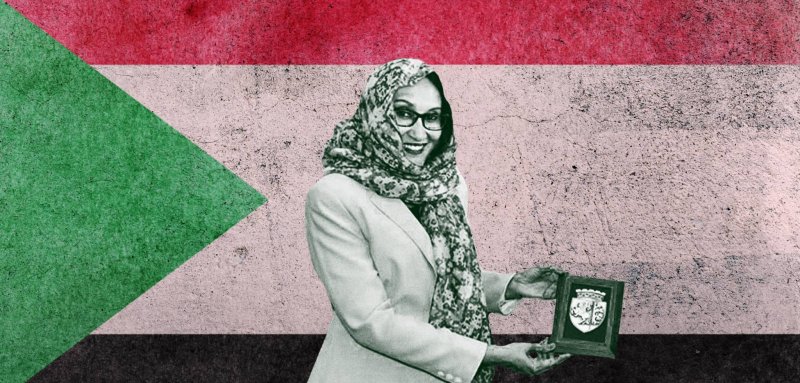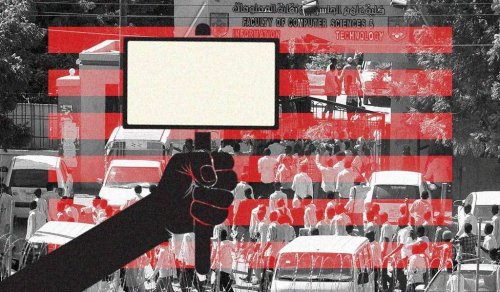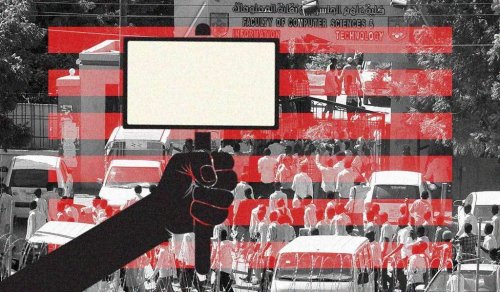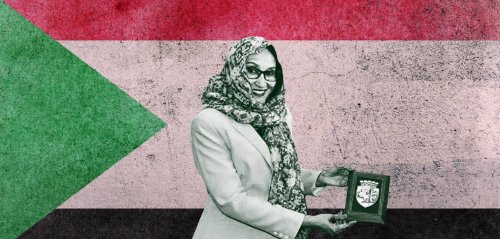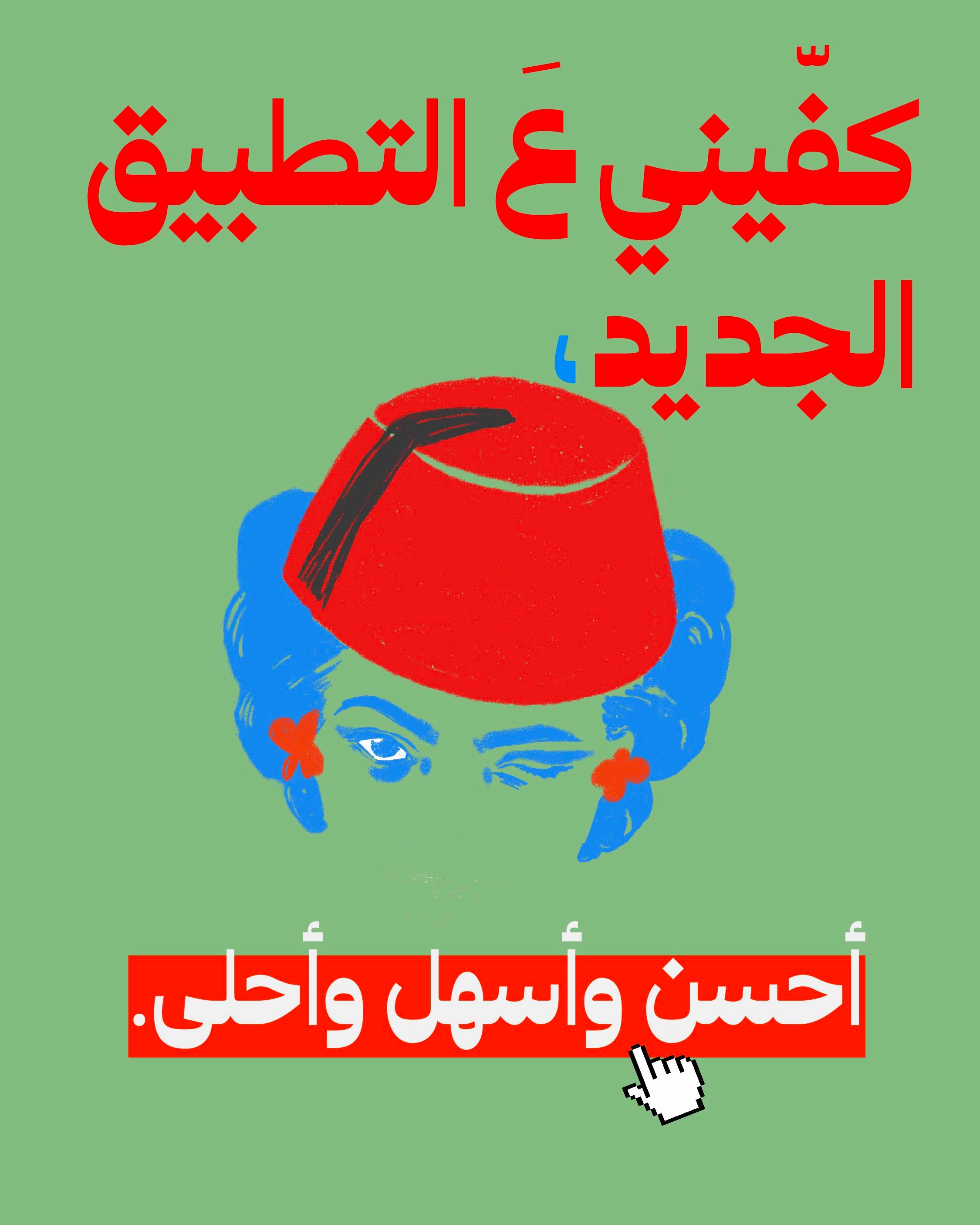Four Sudanese women have been appointed in the new Sudanese cabinet (out of eighteen positions formed on the 5th of September, in the first Sudanese government since the popular uprising that overthrew Omar al-Bashir last April.
The new government is formed of twenty ministries. Sudan's Prime Minister Abdullah Hamdok assumed his role on the 21st of August, declared the name of eighteen ministers, with two more to be appointed at a later date.
For the first time in the country's history, a woman, Asma'a Mohammed Abdullah will assume the role of Foreign Minister. Meanwhile, Intisar al-Zain Saghirun was appointed as Minister of Higher Education, Lina al-Shaikh Mahjoub to the post of Minister of Labor and Human Resources Development, and Wala'a Essam al-Boushi to the post of Minister of Youth and Sports.
National Power Houses
The chosen ministers have a history of social and national struggle, as well as professional qualifications. Indeed, the new foreign minister was one of the leading lights of female cadres in Sudan's diplomatic circles, being the first woman to join a ministry (along with Fatima al-Bily, in the year 1971) before her exclusion during the early period of al-Bashir's reign by the law of "separation for public good" during her work in the Sudanese embassy in Norway in 1990, according to 'Sudan News'.
Wala'a al-Boushi – the minister of sports – became known years ago after she met former US president Barack Obama in 2016 during her participation in a study mission to discuss the suffering of Sudanese women as a result of the economic sanctions placed on the country. Al-Boushi is a mechanical engineer who has been socially active in the defense of women and children rights, and was a participant in the recent 19th of December revolution.
Lina al-Sheikh Mahjoub was a graduate from the faculty of business administration in the Ahfad University for women, and would assume important positions on the local, regional and global level in the field of social responsibility, attaining many prizes for her work. She is also a founder of the "Impact Hub Khartoum" center that works to reinforce and bolster a cooperative environment for entrepreneurs, intellectuals and innovators.
The academic Intisar Saghiroun is an archaeologist specializing in Islamic antiquities, as well as serving as the head of academic research in the University of Khartoum. Her grandfather is Abdulrahman Ali Taha, the first post-independence minister of education, while her father was one of the earliest engineering graduates in Sudan.
Sudanese women have played a prominent role in the country's history, not least since the beginning of popular protests against al-Bashir on the 19th of December 2018. They did reap big well deserved gains:
Sudanese women did not only aim to overthrow al-Bashir's regime, but also to fundamentally change the role reserved for them in the conservative society, amplifying their ability to effect positive change
Progress in Arab Political Scene
The allocation of four ministries to women is a major development in the Arab arena, with the appointment of the four women to important positions going against the prevailing trend in the Arab world – namely, appointing women to "light ministries" or those pertaining to women and family affairs. Here, a Sudanese woman has assumed the major role of Foreign Minister, in the process becoming the third Arab woman to do so following the two Mauritanians Naha Mint Mouknass and Fatima Fal bint Aswing.
Meanwhile, the new Minister of Labour is the fourth Arab woman to assume the post, following the two Egyptians Aisha Abdul-Hadi and Nahid al-Ashri, as well as the Yemeni Umma al-Raziq Ali Hamad.
As for the Ministry of Higher Education, the initiative belonged to Morocco and its minister Samia Benkhaldoun, before being followed by the United Arab Emirates (UAE) with the appointment of minister Jameela Salem al-Muhrairi.
Sudanese Women and the Revolution
Sudanese women have played a prominent role in the country's history, not least since the beginning of popular protests against al-Bashir on the 19th of December 2018. Women heavily participated in the demonstrations and led its first ranks, while providing emergency and medical care for the wounded. Indeed, Sudanese women have been subject to arrest, persecution and even rape, according to opposition groups.
The 8th of March protests were named "The Sudanese women procession" in line with the International Women's Day, in recognition of the sacrifices of Sudanese women and their vital role since the beginning of the protests.
Meanwhile, observers noted that the strong participation of Sudanese women did not only aim to overthrow al-Bashir's regime, but also to fundamentally change the typical role reserved for Sudanese women in their conservative society, while amplifying their ability to effect change and influence.
With the harvesting of the gains of the popular uprising, it became apparent that Sudanese women would be some of its biggest winners. To start with, the new ruling 'sovereignty council' that has been formed on the 20th of August and is tasked with governing the country during the transitional period, encompassed two women – Aisha Musa and Raja'a Nicola Abdul Masih – out of eleven members (six civilians and five military).
Additionally, the Freedom and Change Coalition that led the anti-Bashir protests, as well as the interim military council, promised on the 20th of August to appoint the judge Ne'mat Abdullah Muhammad Khair as the head of the judiciary – the first woman to assume the role in the country, in one of the most notable gains by Sudanese women from the anti-Bashir revolution – despite objections to her appointment (though these are not about her person) which are preventing her assuming the role.
Finally, the appointment of the four Sudanese women ministers in the government has come to affirm the "special and different role of the Sudanese woman in Sudan's future", according to Sudanese activists on social media platforms.
Postponed Hopes
Yet despite the major advances that Sudanese women have recently gained, some activists on social media platforms have taken the opportunity to remind that there are many "rights" that remained postponed and the subject of dreams.
Accordingly, some have noted that the Sudanese woman who has assumed the highest judicial authority in the country remains banned from travelling with her children without the permission of her divorcee, pointing to the continued existence of "unjust and reactionary" to laws which Sudanese women continue to be subject to and are in need of reform.
Meanwhile, others expressed their hope that Sudanese women will coalesce around their demands to enjoy their political rights to participate in elections and to assume more effective roles in the upcoming period.
رصيف22 منظمة غير ربحية. الأموال التي نجمعها من ناس رصيف، والتمويل المؤسسي، يذهبان مباشرةً إلى دعم عملنا الصحافي. نحن لا نحصل على تمويل من الشركات الكبرى، أو تمويل سياسي، ولا ننشر محتوى مدفوعاً.
لدعم صحافتنا المعنية بالشأن العام أولاً، ولتبقى صفحاتنا متاحةً لكل القرّاء، انقر هنا.
